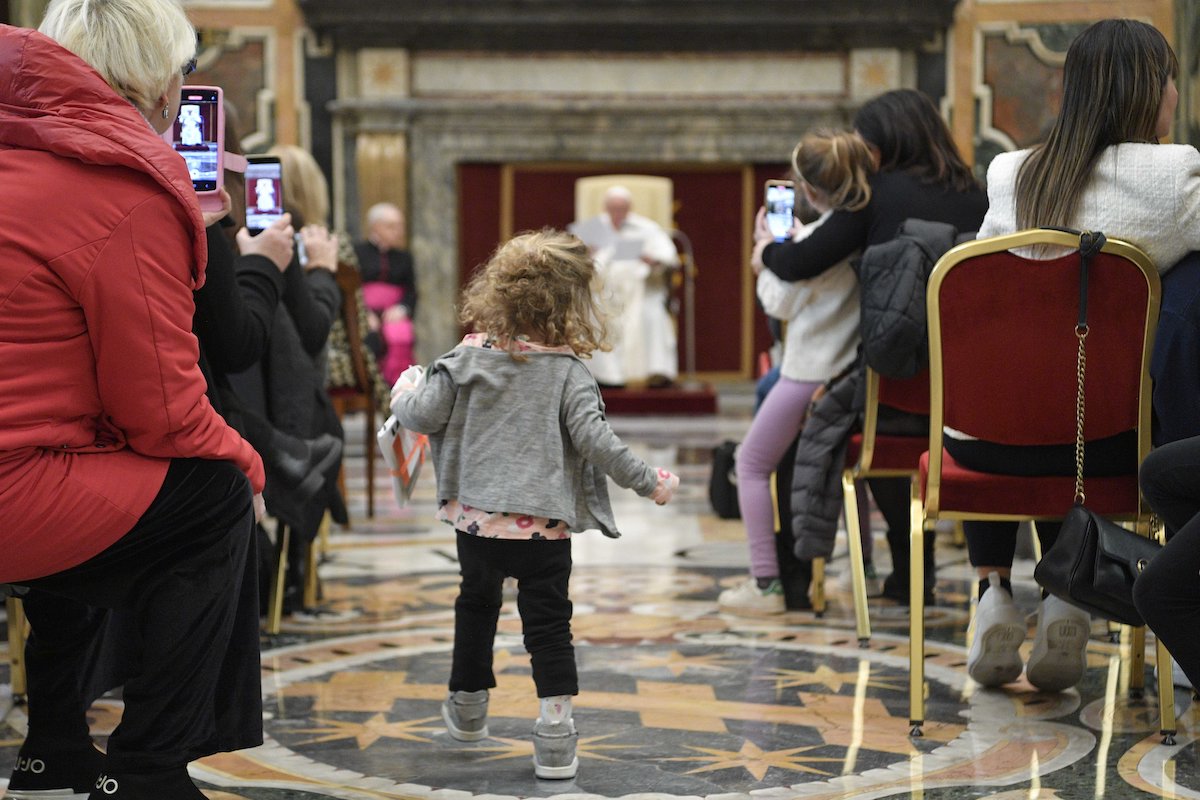By Cindy Wooden, Catholic News Service
VATICAN CITY (CNS) — The smiles, curiosity and boldness of several children with rare diseases who did not know about protocol at papal audiences and simply went up to Pope Francis and reached out for rosaries gave the grownups present a lesson, the pope said.
“They made us understand that there is always a possibility for growth and for moving forward,” the pope told the adults in attendance Feb. 13 for his audience with members of the Italian Federation for Rare Diseases.
The lesson, he said, was strong enough that he did not need to say anything else, so he handed them a copy of the text he prepared for the audience in the Apostolic Palace.
The key point in the written text was that the federation and other support groups are essential for parents who find out their child has a rare disease, but over time those parents must offer support to others and work together to lobby for health care policies and assistance that everyone in a similar situation needs.
The federation goes by the Italian name, “Uniamo,” or “Let’s unite,” which, the pope wrote, highlights the need to “unite experiences, unite forces and unite hope.”
“When a dad and mom discover that their child has a rare disease, they need to know other parents who have lived through the same experience. It’s a necessity,” the pope said. Beyond the emotional support, parents need a place to find information about symptoms, therapies and clinics.
Another important value of such associations, he said, is their ability to contribute to the common good of their members and of society by ensuring that policy makers consider the needs of those with rare diseases and their families, making certain that “no one is excluded from the heath service, no one suffers discrimination, no one is penalized.”
“Certainly, it is difficult to make a commitment to everyone when you already are exhausted facing your own problems,” the pope said. “But that is precisely where the strength of an association or federation lies: the ability to give a voice to those who, by themselves, could never make themselves heard.”







